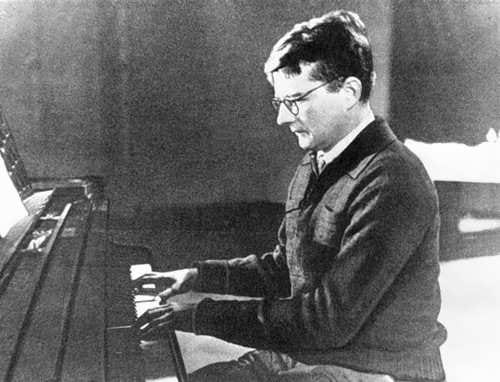Shostakovich Piano Concerto No. 2
I was doing my usual thing: reading and listening to Spotify playing random classical music in the background. Suddenly my attention was captured by a soft, light, bright, incredibly romantic piano, accompanied by the gentle strains of an orchestra. I stopped everything. I couldn’t read anymore; I had to find out what it was. To my amazement, that romantic masterpiece was the second movement of the second piano concerto of a composer whom I had previously considered to be very “unromantic”: Dmitri Shostakovich.
He was a Soviet superstar of a composer, and the Soviet government tried desperately to decode the meaning of his music. Throughout Shostakovich’s life, Soviet censors were looking for that meaning – was Shostakovich pro-Soviet, praising the ruling party, or was he an anti-Soviet (Manchurian candidate) composer. Shostakovich died in 1975, and we will probably never know that answer to that question.
This ambiguity made Shostakovich’s life in the Soviet Union very difficult. In 1934 he wrote an opera called Lady Macbeth. The critics loved it until an anonymous article that appeared in Pravda (often attributed to Joseph Stalin) criticized it and deemed it immoral and anti-Soviet and banned it for 30 years. After the Pravda article came out the critics did the unthinkable: They withdrew all their praise for the opera – they suddenly found flaws in the work that they hadn’t detected before.
In the Stalin’s Soviet Union people were shot or sent to the Gulag without any due process, just on suspicion of being anti-Soviet. I am surprised Shostakovich was able to compose anything, because he lived in constant fear that his music (remember, there are no words in symphonies) would be negatively interpreted by the government. He published his Symphony No. 4 in 1936. The orchestra rehearsed it, but then he suddenly withdrew it – most likely because he feared how it would be interpreted. The symphony finally premiered in 1961, eight years after Stalin’s death.
One thing is certain about Shostakovich’s music: It told stories. We just don’t know what those stories are. He was not a Tchaikovsky “my heart is on the sleeve” type of composer. Each of his symphonies could have been turned into a Fantasia type of movie.
Today, however, we are going to listen to the unexpected (at least by me) Shostakovich, the second movement of his Piano Concerto No. 2.
Shostakovich plays Shostakovich:




